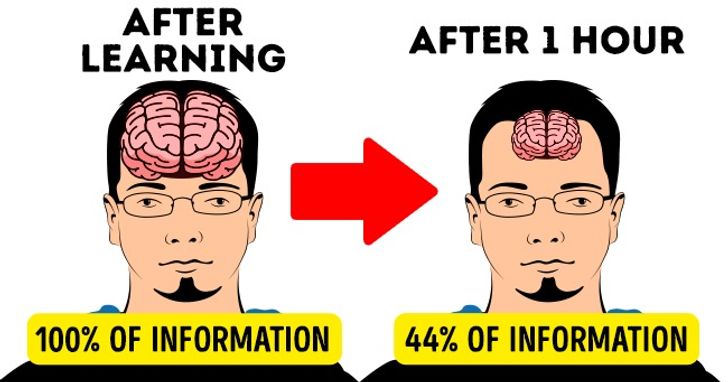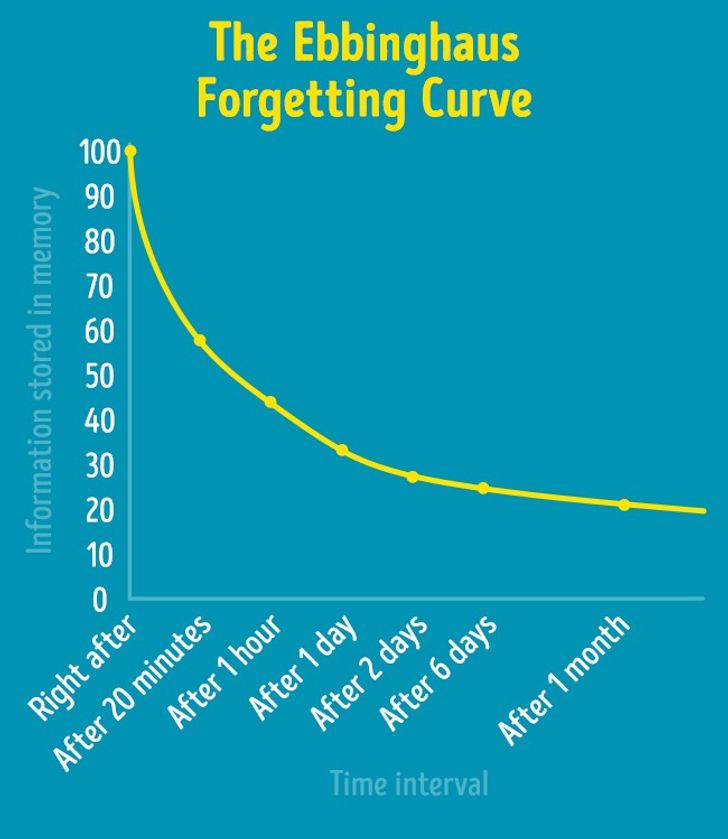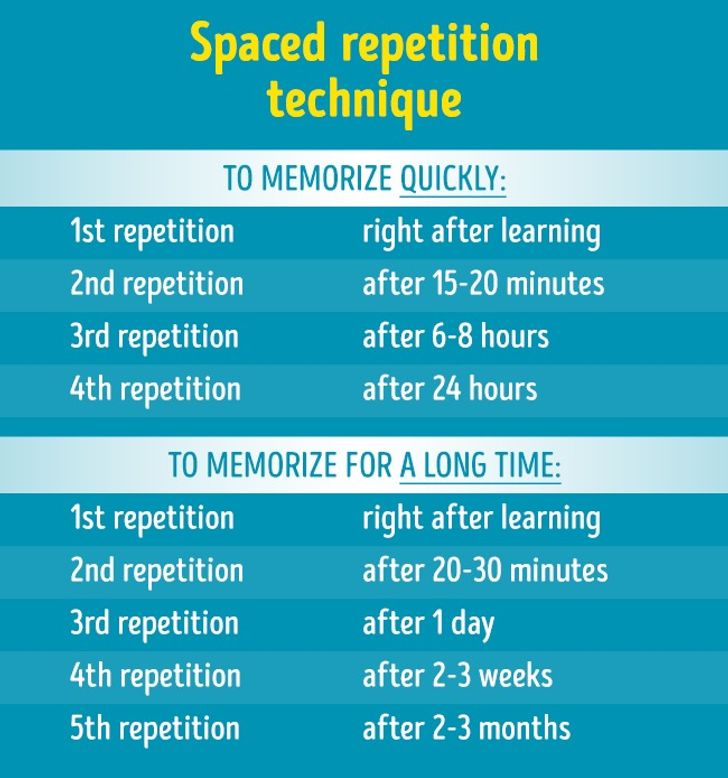We learn things throughout our entire lives, but we still don't know everything because we forget a lot of information. Why does this happen?
Bhaskar Health decided to learn why this happens and find a way to memorize information much more effectively. There is a universal formula that helps us to memorize things more easily that was made by Hermann Ebbinghaus, a German psychologist. And it works.
Why we forget
Your brain protects you from overloading with useless information. That's why all new information is stored in the short-term memory, not in the long-term memory. If you don't repeat it or use it, you forget it very quickly.
The Ebbinghaus Forgetting Curve shows that just one hour after learning we forget more than half of the learned information. One week later we remember only 20%.
How to remember everything
In order to keep the information in your head for a longer time, you need to try to put it into your long-term memory. Forced memorization is not very effective in this case because your brain can't make sense of the information quickly and form strong associations. If you want to remember things for a long time, you need to extend the memorization period. It should be as long as a few days or even weeks.
You can practice interval memorization using self-made cards or special applications like Anki (Android, iOS) and SuperMemo (Android, iOS).
12 more memorizing tips
- Try to understand what you learn. Things that you understand are memorized 9 times faster.
- Learn the most necessary information. You need to set your priorities correctly.
- Take this into consideration: things that are at the beginning and at the end are memorized the best (serial position effect).
- Switch your attention from one topic to another. Remember that similar memories get mixed (interference theory) and become a "mess."
- Learn opposite things. For example, if you are learning a foreign language, memorize day and night. Opposites are easier to memorize.
- Build your own "mind palace." The idea is to associate certain things with a certain place. For example, if you are in your room, try to connect a thing you are learning to something in your room. Repeat it a few times. After that, try to recall what the room looks like in your memory, and repeat the things you learned this way.
- Use "nail words." The point of the technique is to nail one learned thing to another. So when you think of the nail, you automatically recall the other thing.
- Associate new words with those you already know. If you are learning a language, you can memorize something new based on what you know.
- Make up stories. If you need to memorize a lot of information in some particular order, try to put the pieces into a story. It's important that the pieces are connected to each other with some kind of plot.
- Use a tape recorder. Record the information you are learning, and listen to the recording a few times. This method works best for people who memorize audio information better.
Visualize. Use body language when learning. This will help you trigger your muscle memory.
Choose only the best materials. Don't use outdated books and methods of learning. Things might have changed a lot since the books were written. Don't waste your time on something that may turn out to be wrong.






0 Comments